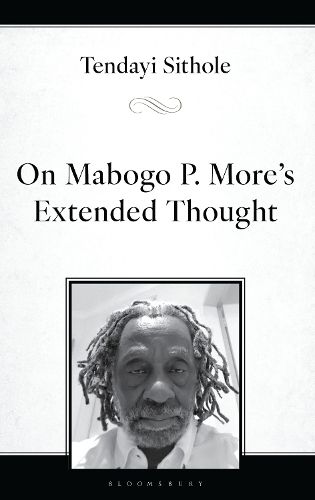Readings Newsletter
Become a Readings Member to make your shopping experience even easier.
Sign in or sign up for free!
You’re not far away from qualifying for FREE standard shipping within Australia
You’ve qualified for FREE standard shipping within Australia
The cart is loading…






Mabogo P. More's understanding of philosophical anthropology as the project that is concerned about the human question profoundly impacted how he accounted for the very idea of a black point of view. This book investigates how More's extended thought generatively engages in themes like the name, principle, antiblackness, blackness, and Azania. With a Black and decolonial intertextuality, it explores ways in which More viewed philosophy not as an abstraction, but as a concrete and material project, one he sought to turn toward calls for justice, for challenging the antiblackness that pervaded post-1994 South Africa, and for a liberated Azania. Demonstrating just how much the South African experience can contribute to the often North-American-centered field of Black studies, the book shows how a politics centered on Black social interests must navigate between the temptations of Marxism and liberalism in order to find its own way towards liberation. At the long arc of the human question, which is at the core of philosophical anthropology, More's extended thought makes a case for being-black-in-the-world as opposed to being-black-in-an-antiblack-world.
$9.00 standard shipping within Australia
FREE standard shipping within Australia for orders over $100.00
Express & International shipping calculated at checkout
Stock availability can be subject to change without notice. We recommend calling the shop or contacting our online team to check availability of low stock items. Please see our Shopping Online page for more details.
Mabogo P. More's understanding of philosophical anthropology as the project that is concerned about the human question profoundly impacted how he accounted for the very idea of a black point of view. This book investigates how More's extended thought generatively engages in themes like the name, principle, antiblackness, blackness, and Azania. With a Black and decolonial intertextuality, it explores ways in which More viewed philosophy not as an abstraction, but as a concrete and material project, one he sought to turn toward calls for justice, for challenging the antiblackness that pervaded post-1994 South Africa, and for a liberated Azania. Demonstrating just how much the South African experience can contribute to the often North-American-centered field of Black studies, the book shows how a politics centered on Black social interests must navigate between the temptations of Marxism and liberalism in order to find its own way towards liberation. At the long arc of the human question, which is at the core of philosophical anthropology, More's extended thought makes a case for being-black-in-the-world as opposed to being-black-in-an-antiblack-world.